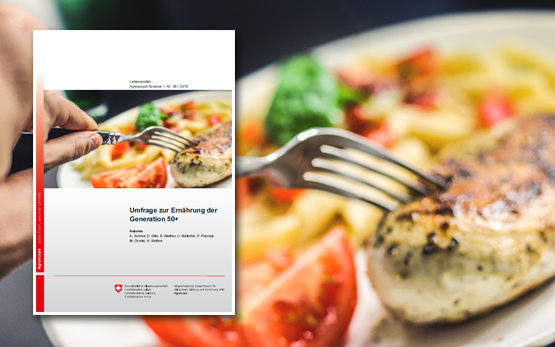Fritsch L., Wagner E., Aeschlimann T., Marti Serrano E.
When the solution is part of the problem - A Listeria monocytogenes case study of an alpine cheese dairy.
In: IAFP European Symposium. 30 April, Hrsg. IAFP, Geneva. 2024.
Fritsch L., Berger T.
Aktuelles aus der Listerien-Beratung Agroscope.
In: Berater-Tagung Deutschschweiz. 7. November, Hrsg. Agroscope, Olten. 2023, 1-36.
Fritsch L.
Listeria monocytogenes.
In: BSc Ernährung und Gesundheit, Lebensmittelmikrobiologie (L. Schwendimann), Kurs Listeria monocytogenes. 4. März, Hrsg. Fernfachhochschule (FFHS), Bern. 2023.
Fritsch L.
Listeria monocytogenes.
In: BSc Ernährung und Gesundheit, Lebensmittelmikrobiologie (L. Schwendimann), Kurs Listeria monocytogenes. 4. März, Hrsg. Fernfachhochschule (FFHS), Zürich. 2023.
Guillier L., Palma F., Fritsch L.
Taking account of genomics in quantitative microbial risk assessment: What methods? What issues?
Current Opinion in Food Science, 48, 2022, 1-8.
Fritsch L.
2.3.3 Listeriose - Überwachung in Milchprodukten.
In: Bericht zur Überwachung von Zoonosen und lebensmittelbedingten Krankheitsausbrüchen - Daten 2020, 42 pp.. 08. Juli, Hrsg. BLV/BAG, 2021.
Fritsch L., Imhof R., Hummerjohann J., Marti Serrano E.
Genomic characterization of long-time persistent Listeria monocytogenes strains in dairy facilities.
In: Genomic characterization of long-time persistent Listeria monocytogenes strains in dairy facilities. 02.11., Lausanne, Effost. 2021.
Fritsch L., Baleswaran A., Bergis H., Lintz A., Hamon E., Stahl V., Augustin J. C., Guillier L.
A microscopy-based approach for determining growth probability and lag time of individual bacterial cells.
Food Research International, 140, 2021, 1-9.
Berger T., Fritsch L., Imhof R., Jakob E., Stanke T., Romanò A.
Erfahrungen aus der Listerienberatung - Kolloquium vom 29. August 2019.
Agroscope Transfer, 295, 2019, 1-13.
weitere Sprachen: französisch | englisch






